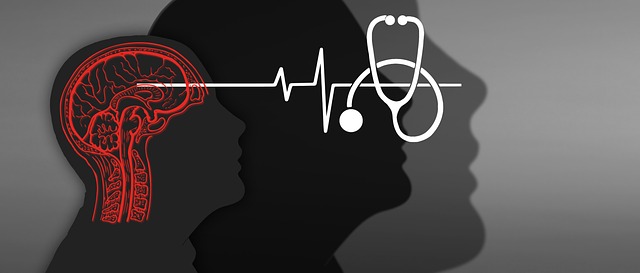Proactive mental health risk identification through journaling, exercise guidance, and tailored education is crucial in clinical settings, especially for Louisville cancer issues therapy. Mental health professionals face unique challenges like secondary trauma and burnout, requiring self-care practices such as setting boundaries and relaxation techniques. Recognizing client risks and addressing workplace dynamics, including long hours, is essential for preventing burnout and fostering a supportive environment that enhances patient outcomes in Louisville Cancer Issues Therapy.
Mental health professionals confront unique challenges that demand meticulous risk assessment. This article explores the multifaceted risks in clinical settings, from client-related dangers like trauma and self-harm to workplace stressors such as long hours and emotional fatigue. We delve into comprehensive risk assessment strategies, including tools and techniques, risk management processes, and the necessity of regular protocol updates. Additionally, we provide best practices for enhancing safety, access to resources, and guidance on relevant training programs, aiming to create a supportive environment that mitigates Louisville’s mental health care risks, reflecting broader national issues in therapy.
- Identifying Potential Mental Health Risks in Clinical Settings
- – Discuss common risks and hazards mental health professionals may encounter in their day-to-day practice
- – Explore client-related risks (e.g., trauma, high-risk populations, self-harm) and workplace factors (e.g., long hours, emotional fatigue, burnout)
Identifying Potential Mental Health Risks in Clinical Settings

In clinical settings, identifying potential mental health risks is a multifaceted endeavor that requires continuous vigilance. Mental wellness journaling and exercise guidance can offer valuable insights into patients’ emotional states, helping professionals detect early signs of distress or exacerbating conditions. By integrating mental health education programs designed with Louisville cancer issues in mind, therapists can better equip themselves to handle complex cases. These programs not only enhance the therapist’s understanding of cancer-related psychological challenges but also provide practical crisis intervention guidance tailored to this specific demographic.
Additionally, fostering an environment that encourages open communication and de-stigmatizes mental health discussions is paramount. Regular staff training sessions on recognizing subtle cues of distress can significantly contribute to a proactive risk assessment strategy. This approach ensures that professionals are well-prepared to offer timely support, whether it involves adjustments in therapy techniques or referring patients to specialized care, thus fostering a safer and more supportive clinical environment for both patients and practitioners.
– Discuss common risks and hazards mental health professionals may encounter in their day-to-day practice

Mental health professionals often find themselves navigating a complex landscape of risks and challenges unique to their field. From intense emotional demands to highly sensitive client cases, these professionals must continually manage their well-being amidst potentially traumatic encounters. Common risks include prolonged exposure to clients’ distressing experiences, which can lead to secondary trauma or burnout. Additionally, the nature of their work often involves high-stress situations, requiring effective stress management and resilience building skills.
In Louisville, as in many urban centers, mental health issues such as anxiety disorders, depression, and substance abuse are prevalent, presenting further complexities. Professionals must be vigilant about self-care practices, including setting boundaries, engaging in regular relaxation techniques, and seeking peer support. Enhancing mood management strategies is also essential to mitigate the emotional toll of their work. By prioritizing these aspects, mental health practitioners can foster a healthier work environment, ensuring they are equipped to provide optimal care for their clients.
– Explore client-related risks (e.g., trauma, high-risk populations, self-harm) and workplace factors (e.g., long hours, emotional fatigue, burnout)

Mental health professionals in Louisville, like anywhere, face a unique set of challenges that can impact their well-being and practice. Understanding and mitigating these risks is crucial for maintaining a healthy work environment and providing optimal care to clients. One key aspect involves recognizing potential hazards within client populations; for instance, individuals with traumatic pasts or those at high risk for self-harm necessitate specialized handling. Professionals must be adept at assessing these vulnerabilities and tailoring their approaches accordingly.
Furthermore, workplace dynamics play a significant role in mental health professionals’ risk assessment. Long working hours and the emotional demands of the job can lead to burnout and emotional fatigue. Promoting healthy work-life balance and encouraging effective communication strategies are essential practices. Mind Over Matter principles, when integrated into daily routines, can enhance resilience against these stressors. Self-care routine development is a game-changer in fostering a supportive professional ecosystem.
Mental health professionals in Louisville face unique challenges, from managing client trauma and high-risk populations to combating workplace stress and burnout. Understanding these risks is a crucial step towards enhancing resilience and ensuring the well-being of both professionals and their clients. By identifying potential hazards, implementing support systems, and fostering an environment that prioritizes mental health, Louisville’s therapy landscape can become safer and more sustainable for all involved.













